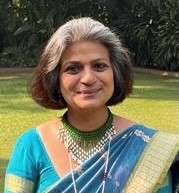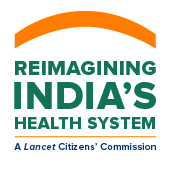In Conversation: Sandra Albert, Director, Indian Institute of Public Health Shillong and Professor of Public Health
February 14, 2023

I started as a dermatologist at KMC Manipal in 1997 and later broadened my interest from clinical medicine to public health. Around 2008 I got involved in a training project in two states in the northeast region of India. These visits made me more aware of the importance of public health and shaped my interest in public health. Around that time, plans for setting up an Indian Institute of Public Health (IIPH) in Shillong, Meghalaya was announced, but we did not see much happening post the announcements. I then reached out to the PHFI and offered to take up a leadership role if a ‘leadership gap’ was perceived as a reason for the delay in establishing the institution. But before taking up that role I also felt I needed some preparation and formal training in public health. Hence decided to do a Doctor of Public Health (DrPH) at the London School of Hygiene & Tropical Medicine. On completion of my DrPH in 2014 we worked to set up the IIPH in Shillong as a regional institute for the northeast.
I am supporting the governance and human resources for health streams of the work. I think issues of quality of services are often rooted in systemic issues within the overall health system. Having the right workforce is crucial, many of the issues within the health system are very closely linked to human resources, whether in their motivation, training, skills, ability, or capabilities. . My work brings me in proximity to policy stakeholders and the government’s governance mechanisms hence I hope to contribute in whatever small way, perhaps some practical insights, to these workstreams
As a country, we are still more focused on tertiary care and less so towards primary care and the preventive and promotive aspects of healthcare. This is one area with enormous scope for improvement and consciousness rising. It may not be ‘eye catching’ and there may not be immediate results to show for effort made. But we need work on improving and making context relevant approaches to addressing the preventive and promotive aspects. In a country as heterogenous as ours we need to adapt implementation processes and make them relevant to each context. I see a problem with many officials often treating guidelines like rules that are sacred and not to be adapted. Perhaps we need to change that attitude. The recent policy that is helping establish and strengthen Health & Wellness Centres as a means to provide Comprehensive Primary Care (CPHC) is a promising one that has the potential to address UHC. It is not infallible but a measure such as that could do with sincere attention, support, enthusiasm and adaptive learning approaches.
I hope the Commission’s report gets attention and traction among policymakers and that the recommendations are taken in the right spirit. The Commission is working to generate and compile the best available evidence and will make recommendations based on the currently available evidence in many areas. I joined the Commission with hope, tempered with pragmatism. One hopes that the work will make practical suggestions, contribute to improve understanding, that people will read it. If we bring out a substantive report, people will keep referring to it over the years. Change takes time, so even if I see changes accruing over a decade, I’d be happy.
